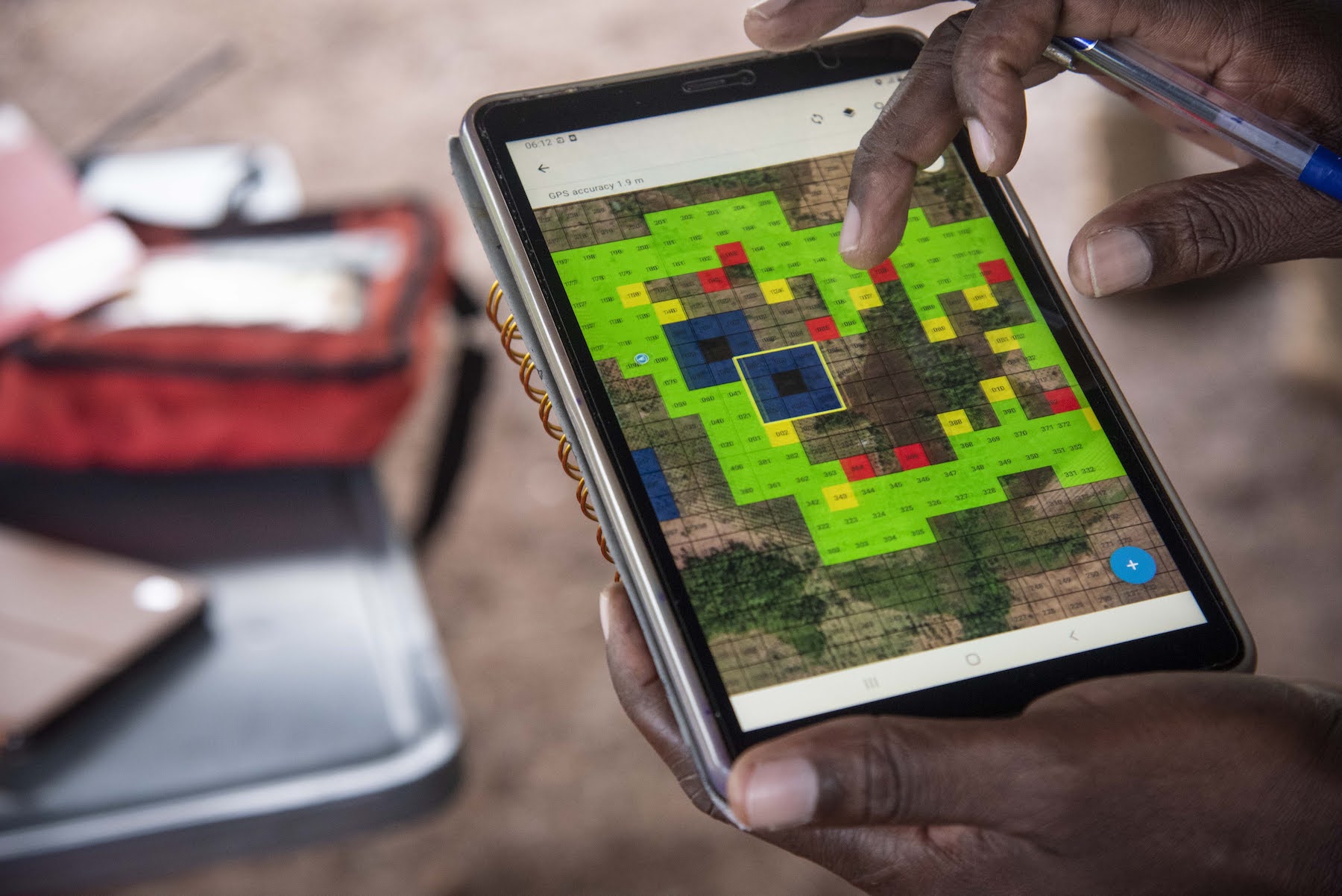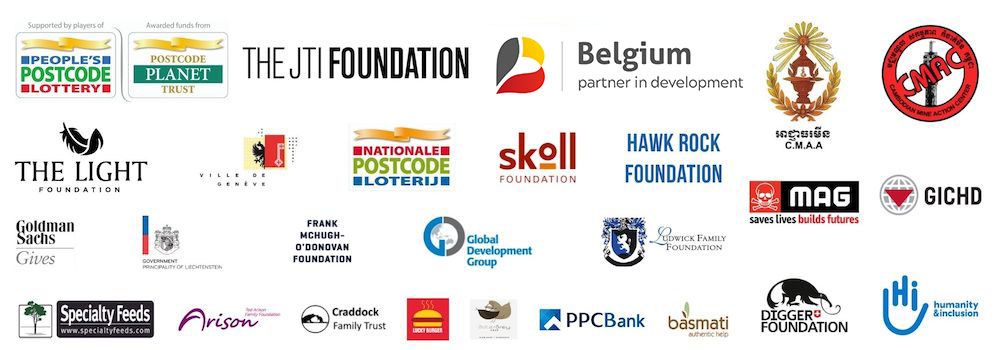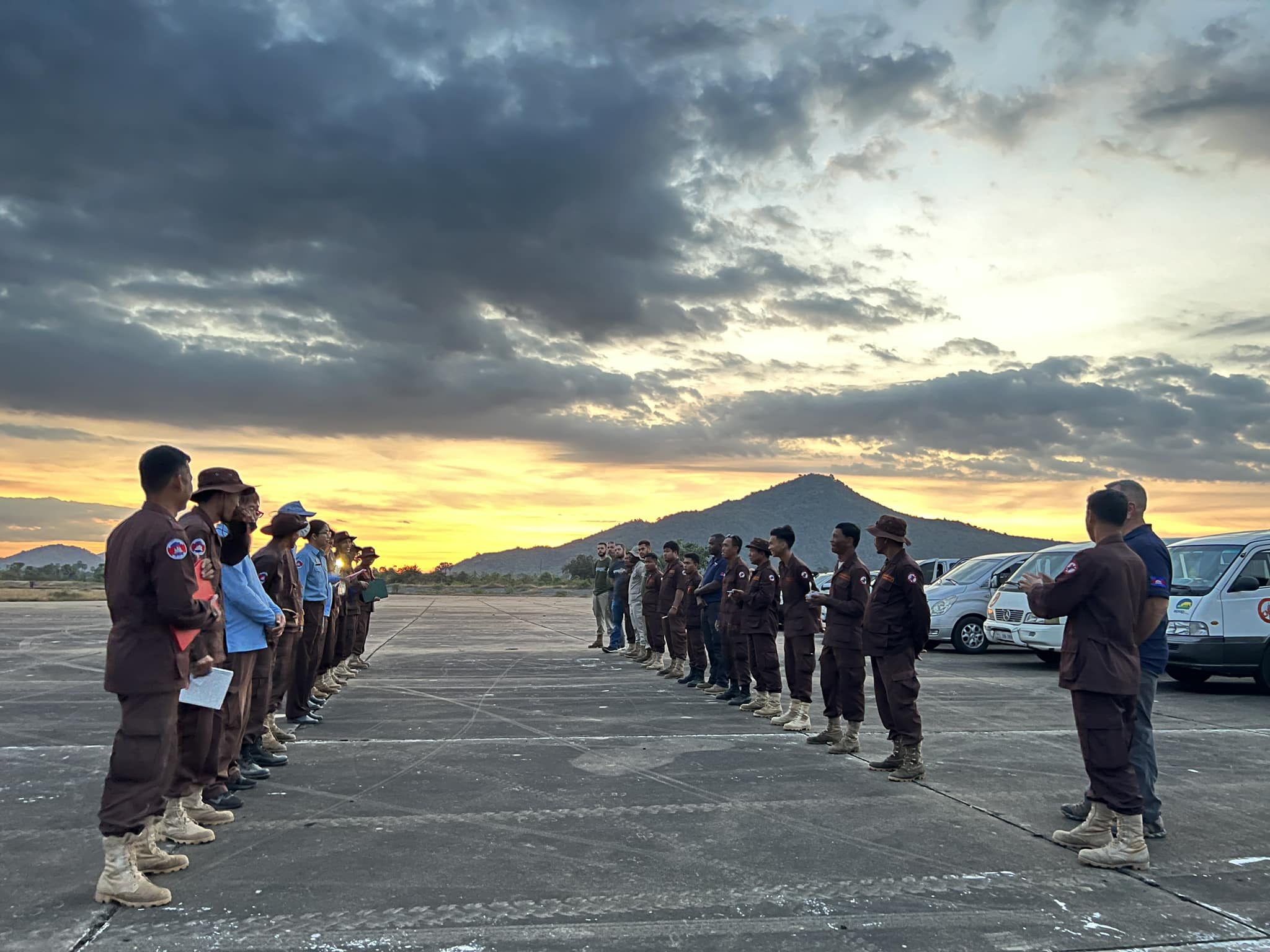Preparations and plans began falling in place in late December for the APOPO Dog accreditation, which is an annual requirement for all animal detection systems working in Cambodia. The first task involved flying four Technical Survey Dogs (TSD) from Bosnia Herzegovina to Cambodia, which proved to be a logistical challenge. The TSD had to be driven across several international borders where the dog passports and travel documents were scrutinized by officials, with the first leg of the journey finally ending in Istanbul. The dogs then flew in pairs on separate days with their handlers from Istanbul to Bangkok Thailand, and were then transported by road to Kampong Chhnang Cambodia, to the APOPO Dog Training Center. The total journey time was around one week taking into account several delays, but they were accompanied by their handlers the entire time. The dogs had several days to acclimatize and settle into their new environment before training for accreditation started.
APOPO’s Head Dog Trainer, Ibro, started working immediately with the handlers and the TSD in January. The team had nine dogs to prepare for accreditation. The training took place at the Cambodian Mine Action Center training area at Kampong Chhnang airport. This training area is vast and stretches almost the full length of the 2.5 km runway, and is covered with varying types of vegetation to duplicate field conditions. Kampong Chhnang airport is known as one if not the best landmine/ERW training areas in the world for dogs.
The TSD training progressed well, however TSD Team 1 had to breakaway on January 15th and travel 6 hours by road and ferry to Ratanakiri to take part in a physical field demonstration for the Office of Weapons Removal and Abatement in the U.S. State Department’s Bureau of Political-Military Affairs (WRA). The WRA were conducting a 7-day field visit to Cambodia. APOPO was thrilled for the opportunity to showcase the TSD team. TSD Team Leader Zacarias and TSD 1 provided an excellent brief and overview of the TSD operations, and methodologies used. The field demonstration was executed excellently with APOPO explaining how the Garmin tracking and ArcGIS mapping systems are used to document our TSD tracks. APOPO is the only organization in the industry at present to use this technology. WRA commented saying “this is the first time they have seen dogs to be so well motivated”, and that the APOPO dashboards were excellent”.

At 6am on January 24th, the CMAC adjudicating staff, the APOPO handlers and dogs along with an independent witness from the Mines Advisory Group (APOPO’s partner in Ratanakiri) all mustered at the accreditation area. CMAC had two staff to monitor each of the nine teams with other senior staff available to answer any questions. Overall the process was managed well and run very proficiently. Ibro and the APOPO team couldn’t have wished for a better outcome, the long hours and hard work had paid off with all nine TSD and Handlers passing the accreditation! Well done to everyone involved, from the selection of the dogs, logistical support, planning and training, to the final accreditation, as the teams did well and passed the first time around.
APOPO Mine Action Cambodia is incredibly grateful to our dedicated and generous donors that make our work possible..


